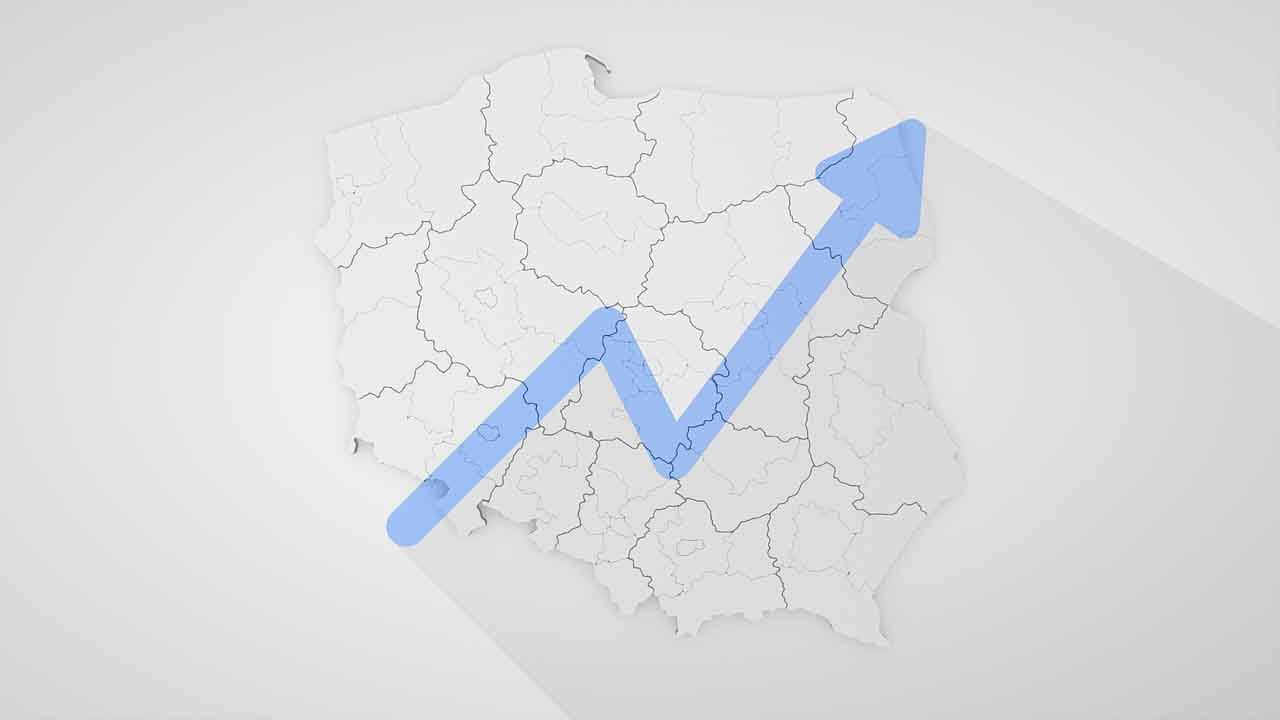The latest reading from the Central Statistical Office regarding inflation allows for both optimistic and pessimistic conclusions. The good news is the nominal drop in inflation to just over 6%. However, the future readings are an unknown. Businesses and experts are worried about the annual average inflation, as well as the fact that the costs of all products and services apart from transport have increased month by month.
– Inflation in Poland in December 2023 was 6.2%
– Inflation for the entire year of 2023 was 11.4%
– Real estate prices are rising
– Comparing year to year, we pay more for food and services
– The price of transport has fallen
Inflation is decreasing, but prices are increasing. We are paying less only for transport, but even here there is a trap.
The latest data from the Central Statistical Office show the state of the Polish economy in 2023, which has been a rollercoaster. From terrible inflation figures in January and February, to the best consumer moods in the last quarter of that year. Despite a rise in demand for tourism and services, the industry is going through a crisis not seen in a long time. All this is happening while Poland is without funds from the EU Recovery Fund and rebuilding after the COVID-19 pandemic and the war in Ukraine.
“There’s no doubt, it’s too early to bid farewell to inflation,” says Hanna Mojsiuk, president of the Northern Chamber of Commerce in Szczecin. She adds, “Even though we are statistically entering the new year in much better moods than we entered 2023, we must not forget that the price increase of products and services is visible almost everywhere. ”
The decrease in transport prices in the last quarter of 2023 was the result of political manipulation of fuel prices. The rise in the price of houses has been generated by the “Safe Credit 2%” program. It remains to hope that the state’s intervention in the economy has ended.
The increase in the minimum wage is the most inflationary.
What are the inflation prospects for 2024? As economist Dr. Katarzyna Kazojć says, the scenario of maintaining inflation at the current level is likely, as is its increase, as there are currently no shortage of pro-inflationary factors in Poland.
Dr. Kazojć states one of these factors is the rising minimum wage, which is currently a factor clearly driving inflation or stopping its further drop. She believes that the increase in earnings is encouraging us to make wider expenditures. Although it stimulates trade and services, it is also a factor that does not halt inflation.
Therefore, Dr. Kazojć does not expect impressive inflation drops, and argues that the most crucial period in 2024 will be the third quarter when the next round of minimum wage increases will take effect. She mentions the significance of EU funds and how they would be allocated in Poland. She warns that if businesses continue to hold back on investment plans, this could result in staff cuts, a serious social issue in the context of relatively high inflation.
